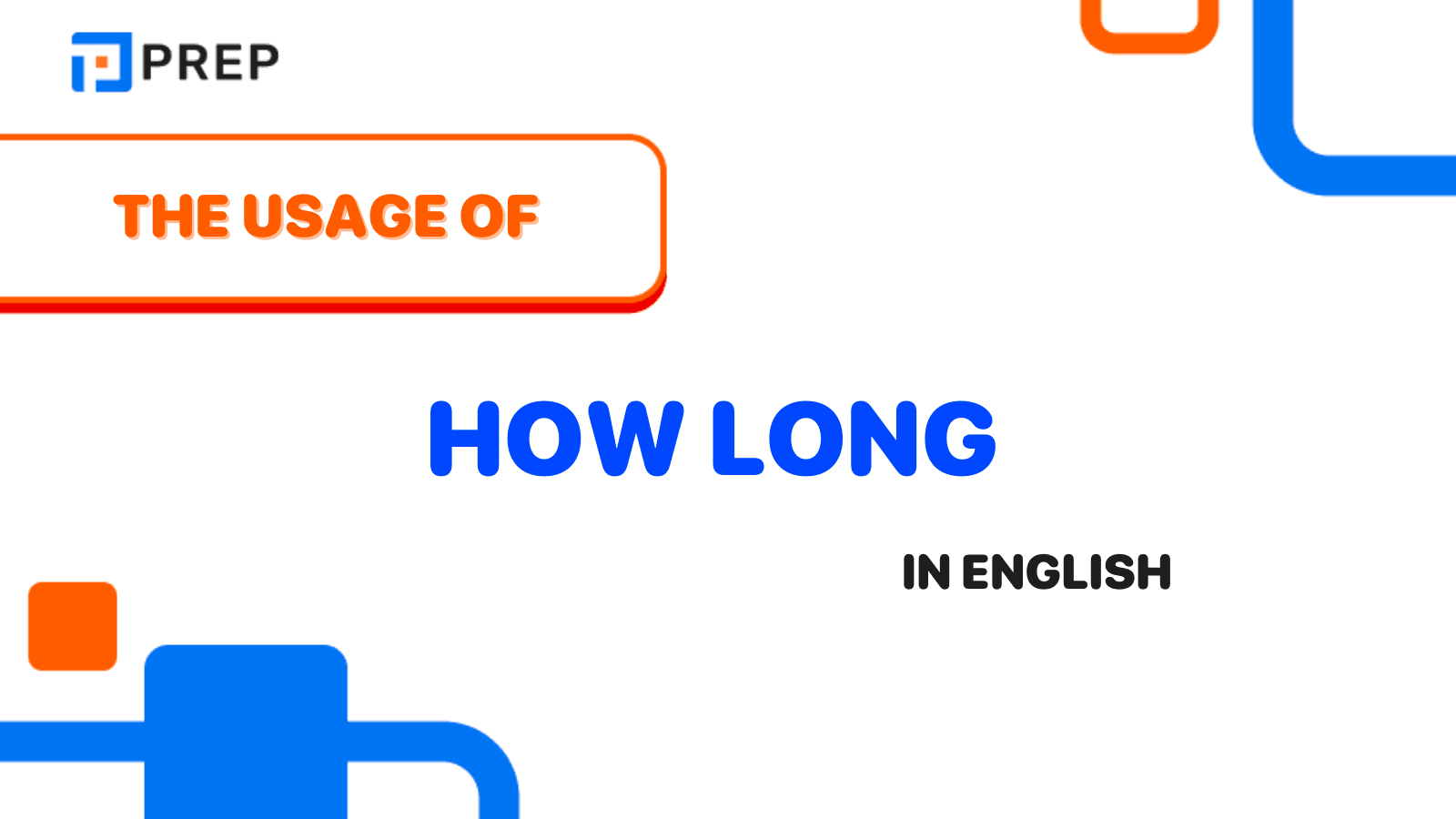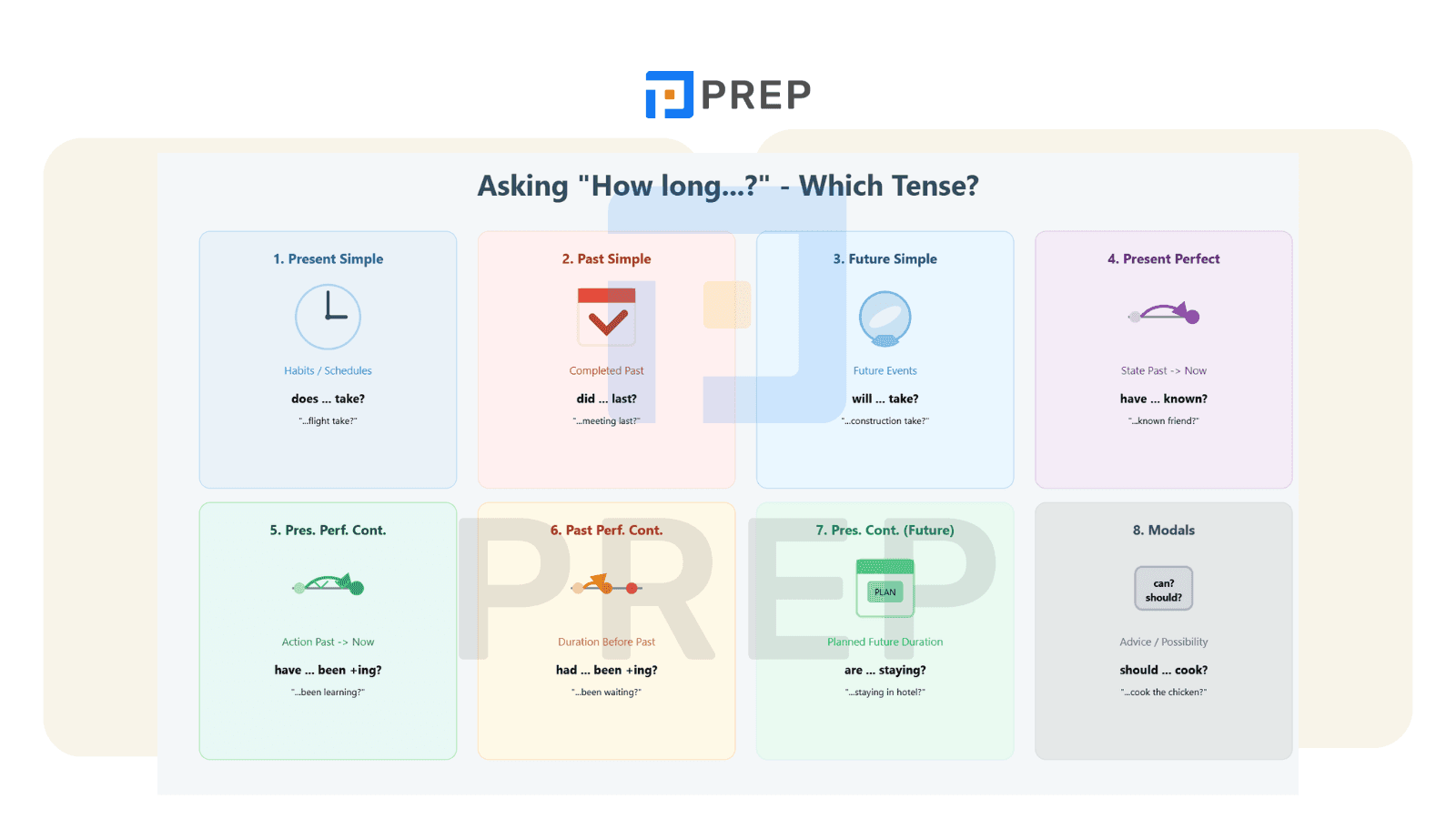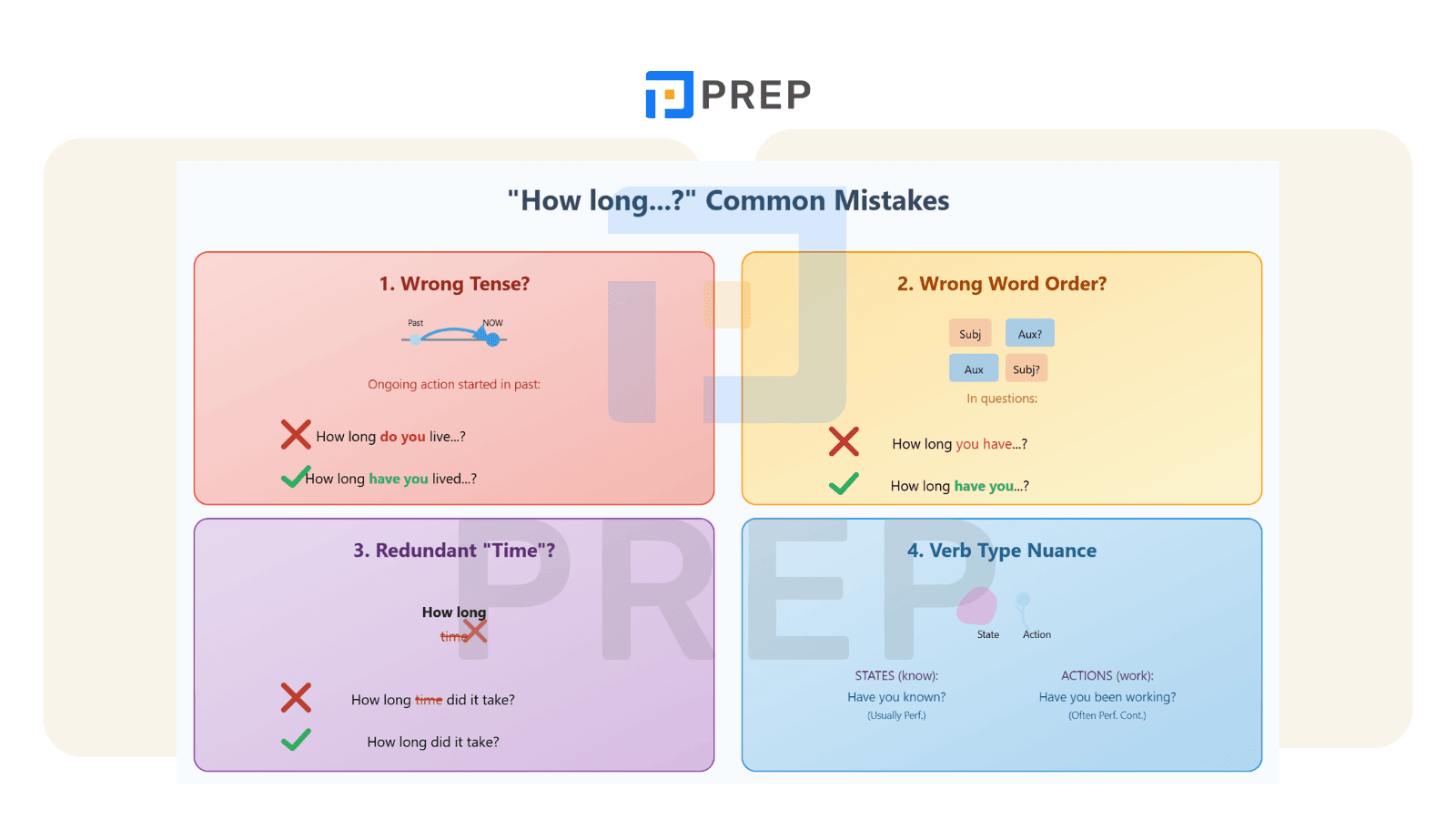The Definitive Guide to Understanding and Using How Long in English
This comprehensive guide meticulously examines How long in English, focusing on its grammatical functions, proper structural formations, and temporal applications. The content systematically breaks down the correct usage patterns across various tenses, particularly highlighting the distinction between duration-focused "how long" questions and other time-related interrogatives. The guide covers everything from basic interrogative structures and tense selection to advanced grammatical contexts and common usage errors. With precise examples demonstrating correct implementations and contrasting them with incorrect usages, the content serves as a definitive resource for English learners seeking to master duration-related expressions in communication.

I. What exactly does "How Long" mean in English?
At its core, "how long" functions as an interrogative phrase specifically designed to inquire about duration—the temporal extent of an action, event, condition, or state. Unlike other time-related questions, "how long" focuses exclusively on the measurement of elapsed time between two points.
"How long" differs significantly from similar time expressions. While "when" pinpoints a specific moment in time (When did the concert start?), and "how often" addresses frequency (How often do you exercise?), "how long" exclusively concerns itself with duration (How long will the meeting last?). This fundamental distinction forms the foundation for mastering time expressions in English communication.
II. Constructing "How Long" questions correctly
Creating grammatically sound "how long" questions requires understanding their structural foundation. The basic interrogative pattern follows:
How long + auxiliary verb + subject + main verb...?
Each component serves a specific function: "how long" signals the inquiry about duration, the auxiliary verb establishes tense, the subject identifies who or what is involved, and the main verb describes the action or state being measured.
1. The basic interrogative structure
When forming questions in the simple present tense, the structure typically uses "do," "does," or "did" as auxiliaries:
"How long does the train journey take?" (asking about a regular duration) "How long do these batteries last?" (inquiring about the typical lifespan)
For simple past tense questions, "did" becomes the auxiliary:
"How long did you stay at the party?" (asking about a completed duration) "How long did the experiment run?" (inquiring about a finished scientific process)
For simple future inquiries, "will" typically serves as the auxiliary:
"How long will the conference be?" (asking about an upcoming event's duration) "How long will they need to finish the project?" (inquiring about a future time requirement)
2. Using "How Long" with the Verb "To Be"
When "to be" functions as the main verb, the structure simplifies to:
How long + is/are/was/were + subject...?
This construction applies when asking about states or characteristics:
"How long is the warranty on this appliance?" (inquiring about a current state) "How long was the intermission during the play?" (asking about a past state)
These fundamental structures provide the grammatical foundation for more complex applications of "how long" in various temporal contexts.
III. Choosing the Right Auxiliary Verb: Matching Tense to Meaning
Selecting the appropriate auxiliary verb is crucial because it communicates when the action occurs and whether it's ongoing or completed.
1. Present Simple (do/does): For Habits, Schedules, General Truths
We use present simple with "how long in English" to ask about regular durations that are generally consistent or scheduled.
Example: "How long does the flight to Singapore take?"
This question asks about the standard duration of a flight—something that remains relatively consistent each time it occurs.
2. Past Simple (did): For Completed Actions/Events in the Past
Use past simple when asking about the duration of something that started and finished entirely in the past.
Example: "How long did the meeting last yesterday?"
Here, we're inquiring about a specific, completed event with a defined beginning and end.
3. Future Simple (will): For Predictions or Future Events
The future simple with "how long in English" helps us ask about anticipated durations.
Example: "How long will the construction take?"
This question seeks information about the expected duration of a future process.
4. Present Perfect (have/has): For Duration from Past Until Now (Often with Stative Verbs)
The present perfect tense is particularly important with how long in present perfect tense as it connects past to present, asking about duration that started in the past and continues to the present moment.
Example: "How long have you known your best friend?"
This asks about a relationship that began in the past and continues now—a perfect application of present perfect with a stative verb like "know."
5. Present Perfect Continuous (have/has been + -ing): For Duration of Ongoing Actions Until Now
This tense emphasizes the continuing nature of an action from past until now, often suggesting activity and progress.
Example: "How long have you been learning English with PREP?"
The question focuses on an ongoing process that began in the past and continues actively into the present.
6. Past Perfect Continuous (had been + -ing): For Duration Before Another Past Event
This complex tense is used to ask about how long something had been happening before another event in the past interrupted or changed it.
Example: "How long had they been waiting before the bus arrived?"
Here, we're asking about duration that occurred before a specific point in the past.
7. Using Present Continuous (am/is/are) for Planned Future Duration
The present continuous can express planned future arrangements when asking about duration.
Example: "How long are you staying in the hotel?"
This question refers to a future arrangement that has already been decided.

IV. "How Long" in varied grammatical contexts
Beyond the standard tense applications, "how long" integrates flexibly into diverse grammatical contexts to express nuanced aspects of duration.
1.5.1. Incorporating modal verbs
Modal verbs combine with "how long" to inquire about potential, permissible, or advised durations:
"How long can we park here?" (asking about permissible duration) "How long should the rice cook?" (inquiring about recommended cooking time) "How long must I wait for approval?" (questioning obligatory waiting periods)
These constructions add layers of meaning beyond simple duration, incorporating notions of possibility, obligation, or recommendation.
1.5.2. "How Long" in reported speech
When incorporating duration questions into reported speech, both structure and tense undergo transformation:
Direct: "How long is the movie?" => Indirect: "He asked how long the movie was."
Direct: "How long have you been waiting?" => Indirect: "She wanted to know how long I had been waiting."
Note the tense backshift (is → was, have been → had been) and the structural transition from question to embedded clause, eliminating question marks and inversion.
1.5.3. Using "How Long" in exclamatory statements
Though less common, "how long" appears in exclamatory statements for emphasis:
"You won't believe how long it took to finish that project!" "It's remarkable how long they've been married."
These expressions transition from inquiry to emphasis, highlighting the duration as noteworthy or surprising.
V. Common mistakes and nuances with How Long
Understanding how to use how long correctly means avoiding these common errors that even advanced learners make.
1. "How Long" (Duration) vs. "When" (Point in Time)
The fundamental distinction between duration and time point questions causes frequent confusion:
✅ Correct Point-in-Time Question: "When did you arrive in Boston?" (asking for arrival moment)
✅ Correct Duration Question: "How long have you been in Boston?" (asking about the stay's length)
❌ Incorrect: "How long did you arrive?" (confuses duration with point in time)
❌ Incorrect: "When have you lived here?" (confuses point in time with duration)
Always ensure "how long" questions inquire about periods, not moments.
2. Incorrect word order in questions
Proper question formation demands the auxiliary verb before the subject: "How long have you been waiting?", ❌ not "How long you have been waiting?"
3. Avoiding redundancy: Not Saying "How long time..."
In English, "how long" already implies we're asking about time, so adding "time" creates redundancy. Say "How long did it take?", ❌ not "How long time did it take?"
4. Omitting necessary auxiliary verbs
Auxiliary verbs remain essential in "how long" constructions:
❌ Incorrect: "How long you stay?" (missing auxiliary)
✅ Correct: "How long did you stay?" or "How long will you stay?"
❌ Incorrect: "How long she living here?" (missing auxiliary)
✅ Correct: "How long has she been living here?"
These grammatical elements cannot be omitted without compromising correctness.

Mastering how long in English transforms your ability to navigate time-related communication across social, academic, and professional contexts. The precision with which you express and understand duration directly impacts your effectiveness as an English communicator—whether scheduling appointments, setting expectations, or sharing experiences.
Beyond grammatical correctness, proper duration expression signals linguistic sophistication and cultural awareness. It demonstrates your ability to navigate the temporal dimensions of English discourse with confidence and clarity. Each correctly formed "how long" question or response strengthens your overall command of English and enhances your communicative competence.
Understanding how long in English grammar thoroughly equips you with the tools needed to express yourself precisely when discussing time durations in any context.

Hi I'm Chloe, and I am currently serving as an Product Content Administrator at Prep Education. With over five years of experience in independent online IELTS study and exam preparation, I am confident in my ability to support learners in achieving their highest possible scores.
Comment
Premium content
View allPersonalized roadmap
Most read












